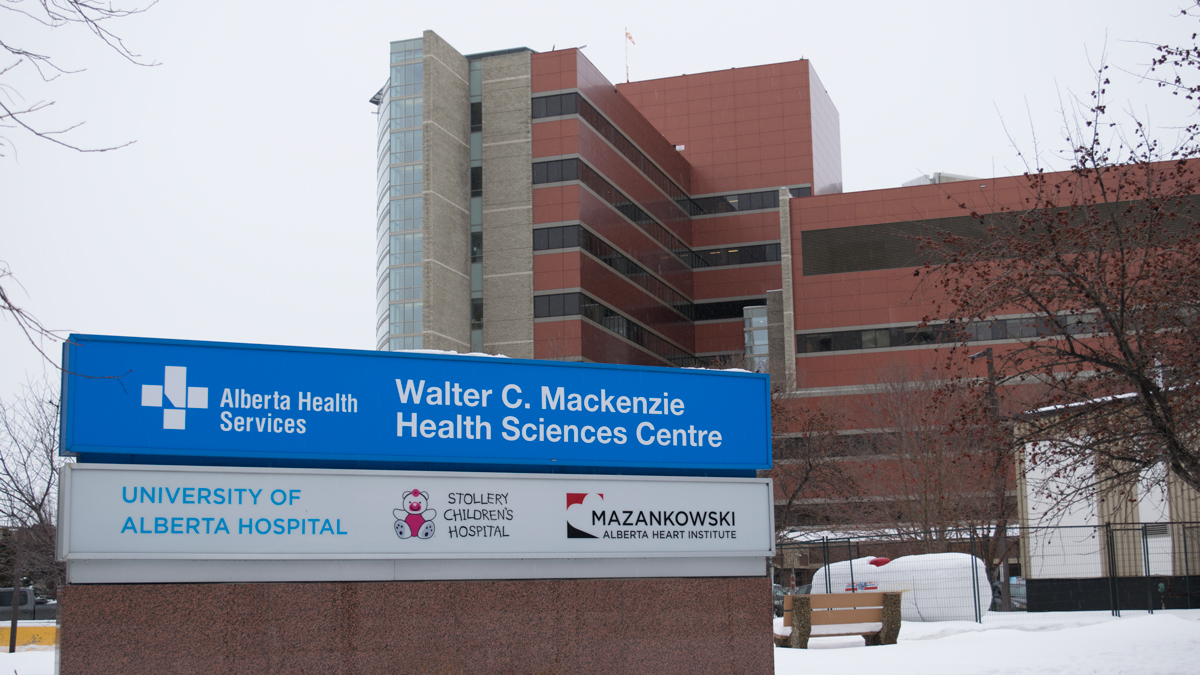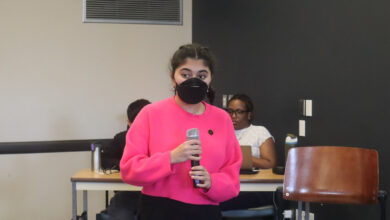 Alexander Cook
Alexander CookImagine a community in the grip of an opioid crisis, desperate for life-saving intervention and support. That’s the reality in Edmonton. And after the Government of Alberta denied further funding for a successful and critical overdose prevention pilot program in Edmonton, this problem has only been made worse. To support a community in crisis, we need the community to step in.
The University of Alberta, located in the heart of Edmonton, stands as a key player in addressing the void left by the discontinuance of the overdose prevention program. The importance it places on the well-being of students highlights the need to address the opioid crisis with urgency. Nearly a quarter of Canadians — 21 per cent — will face addiction in their lifetimes. Students who haven’t yet experienced addiction first-hand or watched someone face addiction likely will someday. Beyond advocating for funding reinstatement, the U of A can leverage both its resources and expertise to address the issue.
The possible end of the program comes at a precarious time for Edmonton. In March 2024, the city saw 52 opioid-related deaths. This is a decrease from the prior year, but still much higher than the 12 reported in March 2016. In May 2024, emergency medical services (EMS) responded to 207 incidents in Edmonton alone.
The Edmonton overdose prevention program tried to reduce these opioid-related emergency calls, hospitalizations, and fatalities through naloxone distribution, overdose education, and service referrals. Without financial support, the program’s continuation is uncertain. Its loss could contribute to a worsening public health crisis and increased strain on emergency services and health-care providers.
Alberta Health Services (AHS) plays a crucial role in addressing public health issues. However, amid orders to cut costs and massive restructuring, its ability to provide extensive support is limited. As a result, the responsibility to address the opioid crisis falls on organizations and institutions supported by the province, like the U of A.
The province’s denial of funding for the overdose prevention program is a significant set-back. However, it’s important to recognize that supporting public health initiatives isn’t solely the provincial government’s responsibility. Other stakeholders in the community’s health, like the U of A, are also responsible for addressing the opioid crisis.
The U of A could integrate opioid-prevention training into the curriculum for the school of public health, faculty of pharmacy and pharmaceutical sciences, and faculty of nursing. Additionally, to achieve a more immediate impact, these programs could include a community service aspect. This could have students partnering and participating alongside community stakeholders who already have initiatives, like the prevention program, in place. Students would have the opportunity to educate the community about the available resources for opioid use and addiction. It would thereby enhance awareness and support at the grassroots-level.
As the crisis worsens, it will become increasingly challenging to avoid its impact in health care settings. Failing to educate these future professionals now could leave them ill-prepared to address the crisis effectively. By incorporating such training, the next generation of providers will be better equipped to provide real and impactful interventions. This is especially important when encountering opioid-related challenges in their practice and communities becomes more common.
Moreover, the U of A can harness its faculty and students’ research capabilities to develop and integrate innovative tools into clinical practice. Cloud Cao, an associate professor at the U of A, created a machine-learning model which can predict patients’ health conditions, including the risk of addiction. More tools like Cao’s can help health-care providers identify high-risk patients and improve intervention strategies. The U of A can help transform new ideas into practical applications by connecting research and clinical practice. Ultimately, this would contribute to a more comprehensive approach to addressing the complexities of the opioid crisis.
The opioid crisis in Edmonton requires a coordinated, multi-stakeholder response. Although the provincial government predominantly funds public health initiatives, the scope of the opioid crisis demands that institutions like the U of A step forward. It can drive change by integrating prevention training into health-care curricula, collaborating with researchers, and building partnerships. It’s imperative that the U of A work to mitigate the effects of the crisis on its students and the wider community.




